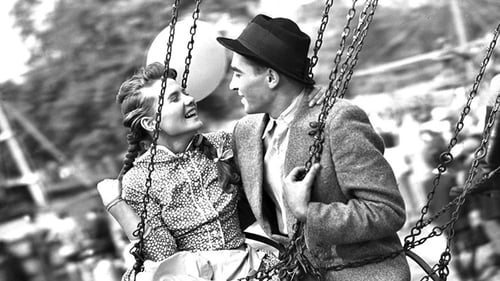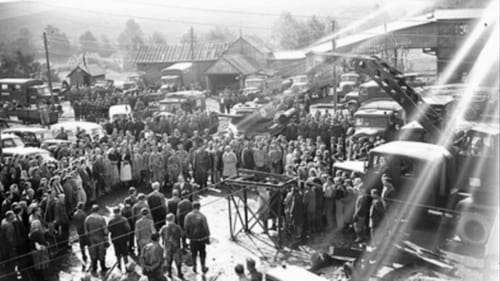György Ránki
出生 : 1907-10-30, Budapest, Hungary
死亡 : 1992-05-22

Additional Soundtrack
In the Kerepesi Street cemetery, three grave diggers contemplate the fate of the world, then they step out of this role and in a sequence of episodes they play the typical figures of contemporary Hungarian reality, the fat cat, the swashbuckler, the victim, underworld chieftains, and present little absurd dramas of love, marriage, friendship, public order and legal safety. The author and the film director walk among them all the time, contemplating, laughing at their plays. The stories starting from the graveyard and returning there warn of the inevitability of death. The author and the director (Gyula Hernádi and Miklós Jancsó) wisely make friends with death.

Original Music Composer
Bátky János a 20th century intellectual studies the secret of the Rosicrucians in London libraries during the day and in the evening takes pleasure in the "decent" everyday joys offered by the fair sex. He gets involved in the wildest ghost-story in the mysterious Wales castle of the Pendragons, where Earl of Gwynnedd from the 18th century is making experiments to prove his ancestors' slogan, "the resurrection of the body". In the meantime St. Claire, a beautiful, demonic woman and her companions try to kill him for the huge legacy.

Music
The film adapts a true story from the beginning of the 70s.

Music

Original Music Composer
The film is a story of a double journey. The main character of the first journey is the author himself, who, while sitting in his customary café, suddenly realises that he has hallucinations. The psychologist reassures him that all this is merely repression. The symptoms, however, appear again. Soon it turns out that the author has a brain tumour. Professor Pötzl in Vienna suggests operation right away. The intervention, through which he is awake, is carried out in a Stockholm clinic.

Original Music Composer
A young man spends his last three nights with his lover before his army regiment is ordered to war. When he deserts his unit to return to her side, he discovers the woman he loves is gone, and he is interrogated by the police when he learns his lover is a communist agent. The two finally are reunited at the police station where the embarrassed man denies ever knowing the accused woman.

Music
A bitter fable about Pegasus, the symbol of divine and pure inspiration, and his inability to fit into today's world.

Music
This drama about a boorish non-conformist takes place in Hungary after the war and is dulled a little by political overtones but is still an engaging story. The setting is the countryside, where an independent, landowning farmer busies himself in his free time by bedding down the women on his farm and then tossing them aside. One such ill-treated lass ends up marrying a young man who is in charge of a communal farm, a farm the womanizing "beast" of the title is later forced to join. The arrogant, formerly independent farmer does not reform his ways and is soon chasing after the young manager's wife, the woman he dropped not that long ago. The results are disastrous.

Original Music Composer
Miskei, the popular and dynamic president of a co-op falls in love with Mari, the attractive wife of the elderly Pató. The deeply feeling woman is fed up with the service beside the haughty land holder, she is longing for tenderness and a child. The passion of Miskei is growing when he sees how crudely, humiliating Pató treats her. During a powerful summer shower, when chance brings them together in an abandoned press house, he storms on Mari confessing love. The woman refuses him bitterly. Miskei calms down and he keeps on expressing his love and high esteem with the woman by steadfast and tiny compliments. Early one morning Mari leaves her husband and sets off to the city to learn and to begin a new life.

Music

Original Music Composer
The young maid, Anna starts to work for the noble Vizy family. Mrs Vizy is proud of the hard-working servant but doesnt treat her well. Her nephew seduces Anna with sweet words, but when leaves her as soon as she gets pregnant. The humiliations of Anna finally lead to a tragic ending.

Music
1932, Budapest. Gere János, an unemployed worker searching for employment in the capital, is organised into the secret police after a raid. Summary justice is declared, and the police wants to find an illegal communist press at any price. Gere, wandering about in the dark city, joins a man, helping him to carry his luggage. Slowly, Gere learns that his companion is a Communist and his task is to keep the press machine hidden from the police.

Original Music Composer
Life is on in the old house of Vizváros. Kids play on the ground. The adopted son of the janitor, Matyi, is hopelessly in love with Juli. He would like to emigrate to America with her. She prefers Janó, the driver, a great womaniser.

Music
To calm down the competition that is raging between the tailor and the blacksmith, the justice men of a village decides to challenge the two craftsmen by having the two exchange their roles for a day.

Original Music Composer
The twenty-year-old Gida, having just survived his first amorous disappointment, falls for Katinka, the young widow, at first sight.

Original Music Composer
This easy-to-take Hungarian drama is also known as Two Wishes. The prinicipal characters are a pair of juvenile delinquents, who may still be redeemable. The sullen duo is befriended by a kindly police inspector, who takes it upon himself to straighten out the boys. What follows cannot be termed surprsingly or innovative, though it is immensely satisfying. Of interest is the fact that a Communist-bloc film would admit to a delinquency problem in the so-called Worker's Paradise. Ket Vallomas was the Hungarian entry in the 1957 Cannes Film Festival.

Original Music Composer
In a rural scenery in the throes of difficult changes lives a humble but promising young farmer girl called Mari Pataki. Her father forbids her from seeing the man she loves. The father, above all preoccupied by work on the fields and prospective wealth, decides to give his daughter in marriage to an old but rich man with whom he does business. Land marries land, he says. This seems to be the unyielding rule of the Hungarian peasantry. But the young lover is ready to stand up to any challenge to keep Maris love.

Music

Original Music Composer
September 1952 in a mine in Northern-Hungary after an explosion water breaks in from the neighbouring shaft and fourteen miners become trapped. The whole country unites to save them.

Original Music Composer
1952. The workers who have performed the reconstruction of the bridges are now needed at the construction works of the underground railway. During admission they are diluted with elements of doubtful fame and many of them are in a bad mood for the wages, too.

Original Music Composer
A female worker in Socialist Hungary gains the acceptance of her male colleagues.

Music
1h 35min | 21 October 1948 (Hungary)

Original Music Composer
Az Aranyember (The Man of Gold) was based on a novel by Jokai, at one time Hungary's foremost storyteller. Set in the early 19th century, the story revolves around Timar (Ferenc Kiss), a ferryman on a Danish tugboat. Rescuing the daughter (Marisa Kormos) of a Turkish nobleman from a watery grave, Timar is rewarded with the girl's hand in marriage. Now rich beyond his wildest dreams, our hero finds he is unsatisfied; it seems he has never forgotten his true love, flower girl Noemi (Anna Fuzes). Timar is forced to suffer mightily until he is finally permitted a tender reunion with the girl of his dreams.

Original Music Composer
Az Uj Foldesur (The New Squire) was based on a novel by popular Hungarian author Maurice Jokal, whose many works had previously been largely ignored. After the wars of 1848, a retired Austrian army officer "returns to the soil" as a gentleman farmer in Hungary in the 1850s. The old campaigner is the father of two daughters: One of the girls comes to a sad end thanks to the malfeasances of a handsome spy, but the other has a happier fate when she falls in love with a Hungarian POW. The underlying theme is brotherhood, as the formerly warring Austrians and Hungarians at last find a common ground. Az Uj Foldesur was nearly twice as expensive as the average Hungarian film -- but at $40,000, its budget was a drop in the bucket compared to a typical Hollywood production.


















